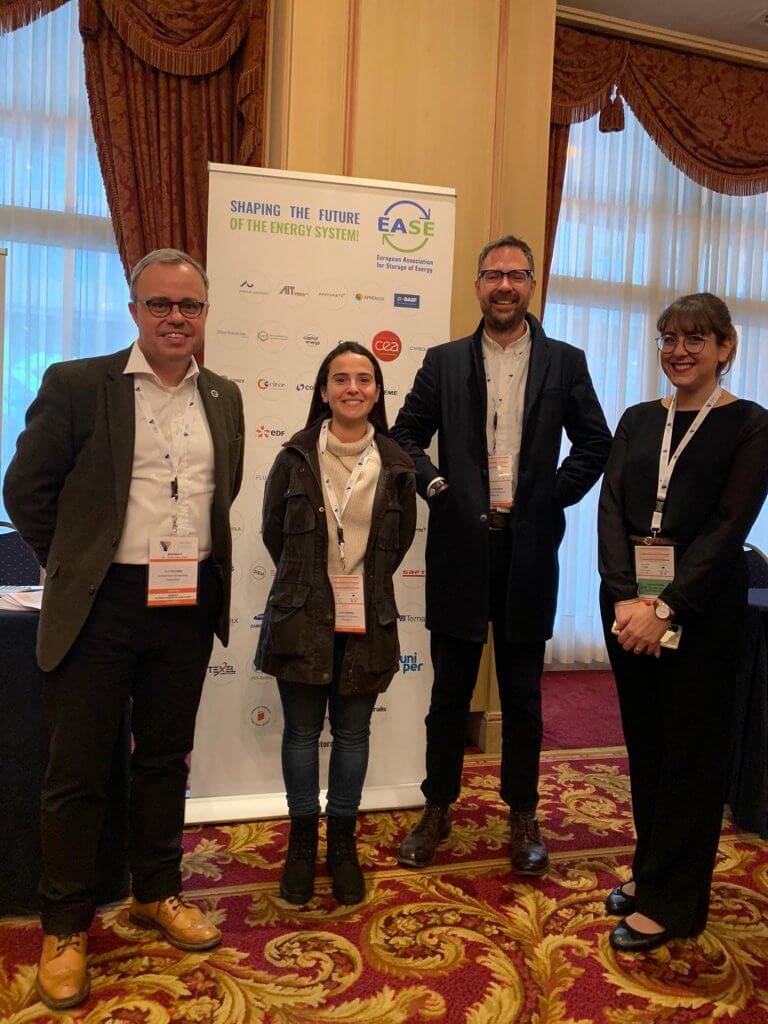
The 4th edition of EASE’s Energy Storage Global Conference took place last week (19 – 21 October) in Brussels and online. With the support of the European Commission, the event provided three days of talks and discussions around the future of energy storage, its current market, policy frameworks and the latest trends in technology.
For the opening session, Maroš Šefčovič, Vice-President of the European Commission for Interinstitutional Relations and Foresight, spoke about the key role of energy storage and batteries to achieve climate neutrality by 2050, while highlighting its increasing demand to answer the new targets for renewable energy and carbon emission standards.
Šefčovič mentioned the importance of innovation and competition to keep investing in current technologies, improving performance and using advanced materials: “Europe must invest, not only in improving existing solutions but also in developing next generation breakthrough technologies”.
EASE’s President, David Post, also predicted battery storage of 7.7TWh by 2030 and highlighted the importance of supporting all technologies.
The last day of the conference was focused on discovering the latest cutting-edge energy storage technologies and CBI’s Research and Innovation Manager, Dr Carl Telford, spoke in a session dedicated to “Electrochemical and Electrical Energy Storage”, presenting the work that CBI has been developing through research and innovation for advanced lead batteries.

CBI's 2021 Technical Roadmap was presented to illustrate how constant performance improvement and technological advances can create limitless opportunities for the lead battery industry to help achieve global electrification and decarbonization targets.
While navigating through Europe’s funding landscape and showcasing European energy storage case studies using lead batteries (with Exide Group and Systems Sunlight SA), Dr Telford explained the challenges that the industry might face when applying through a “very complex” funding system, but also concluded with an optimistic note on the amount of opportunities that exist for energy storage and batteries in terms of public funding, proving that these are indeed necessary for the future:
“When considering the EU’s high-level goals, the speed of action required to mitigate the climate crisis, it is crucial that all energy storage solutions are not only available for deployment, but also encouraged”.
